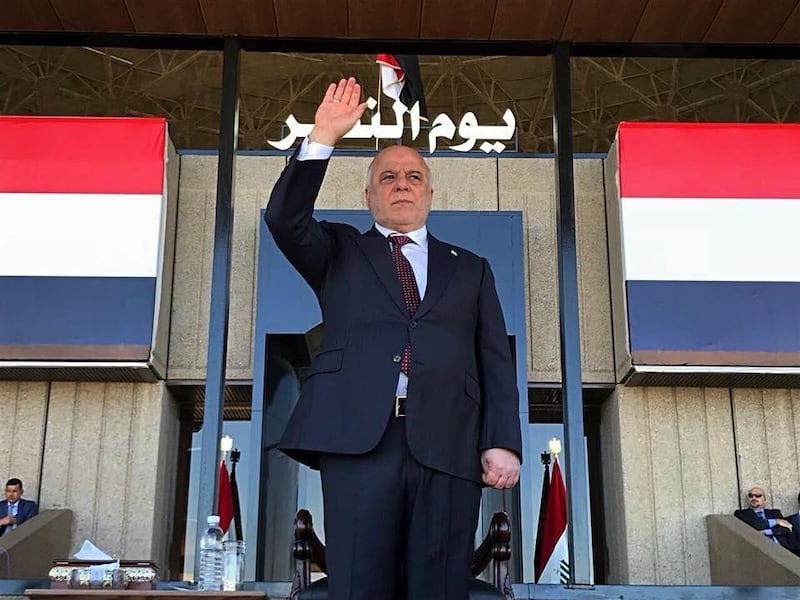ISIL's fall has been as swift as its rise. The self-styled "caliphate" which claimed in 2014 to be invincible lost a succession of battles in Iraq and Syria over the last few months. On Saturday, the Iraqi prime minister, Haider Al Abadi, announced on television that the territory of his nation was now completely free of ISIL. "The dream of liberation is now a reality", Mr Al Abadi declared. The Iraqi military has held a victory parade in Baghdad and, henceforth, December 10 will be celebrated as a national holiday across the country. No one should begrudge Iraq its moment of glory.
Military operations have reached an end, but as these pages have previously warned, the fight against ISIL is likely to rage on in different forms. As Gen Joseph Votel of US Central Command has cautioned, ISIL's residual forces may regroup and operate in smaller cells. ISIL-related suicide bombers remain a persistent threat, as the horrifying attack on a Sufi mosque in Egypt's north Sinai region last month showed. In addition to the immediate security challenges, there remains the climate of economic and political dispossession that enables extremists to thrive. As long as this climate is left unaddressed, the ugly ideology of ISIL will continue to corrupt minds and find converts to its nihilistic cause.
_________________
Read more
[ US commander sees more battles before ISIL is beaten ]
[ Jerusalem, Iran and the fight against extremism dominate discussion at Manama Dialogue ]
[ Editorial: ISIL is on the brink of physical defeat, but the fight is far from over ]
_________________
Iraq has also now to confront the urgent challenge of revamping the paramilitary forces that were mobilised against ISIL. What does Iraq now do with the forces beholden to Iran? Now that combat operations against ISIL are at an end, can these militias be prevented from becoming instruments for the advancement of Tehran's interests? The future of Iraq following the fall of ISIL simply cannot be isolated from the designs of Iran. The priorities of the former, after more than a decade of war, revolve around the need for economic prosperity and political stability; the objectives of the latter are focused on establishing its own control over the region by breeding instability and spreading terror.
Speaking on Friday at the 13th Manama Dialogue in Bahrain, Sir John Jenkins, who has closely observed the Middle East for nearly four decades, noted that the dominant theme of the region during that period has been Iran's rise on the wings of "radical and violent" ideologies. Iran, he said, has spread its influence by feeding on the "discontents" in this region. ISIL is defeated, but the prospect of such groups re-emerging cannot be discounted. At the same time, the threat from Iran and its proxies remains ever present. The victory against ISIL must not prompt anyone to overlook this danger.
Follow The National's Opinion section on Twitter





